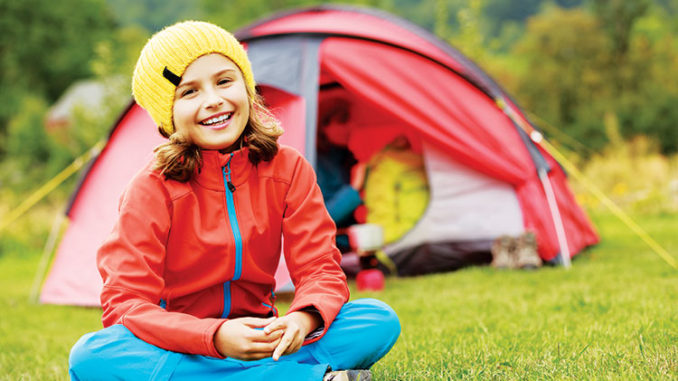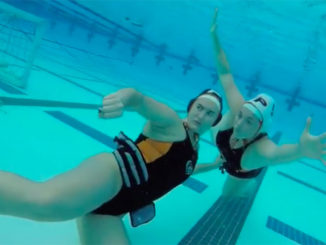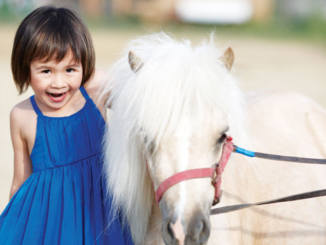
Building Blocks for Successful Adults
Summer camp is a timeless tradition. Whether it’s bunk beds and campfires in the forest, or daylong sports-centric activities, summer camp is the best answer to that nagging question inside, how am I going to entertain the children all summer long?
Once school has ended, those three (long) months of freedom and relaxed schedules that stretch in front of you may feel overwhelming. But instead of looking at summer as an endless string of “I’m bored,” exclamations, take the opportunity to enrich your child’s life with activities they enjoy. Instead of the have-to’s of school, summer camp offers want-to’s that children can look forward to. And because San Joaquin County is brimming with camps of all shapes and sizes, there’s sure to be a fit for every child that plays to their interests.
Benefits of Summer Camp
Responsibility:
At home, children typically have their parents, or another person, there to care for them. At camp, much like school or extracurricular activities, children are forced to rely on themselves or other adults that are not their typical support system. Especially at a sleep away camp, children learn how to address their own needs and develop skills that aid them in becoming self-sufficient adults. There isn’t someone nagging them to brush their teeth before bed or finish a meal, they have to make those decisions on their own.
By taking care of themselves, they are learning responsibility, a key building block for becoming a successful, independent adult. Without the ever-watchful eye of a parent nearby, children will learn to solve conflict on their own, lean on others for support, and engage freely with their peers.
Building Relationships:
Just like children have a family at home and friends at school, summer camp is an opportunity to create a new community. At camp, kids learn and play with other kids. This gives children a sense of belonging that will serve them well into adulthood. There are counselors available for support, but in a lot of ways, camp is an experience for children to bond with other children and create new communities outside of their everyday life. Camp friendships have the ability to become life long.
This can be especially important for kids who do not excel socially in traditional settings such as school. At camp, children are encouraged to be inclusive as well as open up to each other; and when they live in close quarters, they get to know each other on a deeper level, in a smaller group not influenced by outside sources. For children who have fewer friendships outside of camp, the friends they meet at camp can become fundamental to their development.
New Experiences:
It’s important to give your child the opportunity to have many unique experiences, and there are always more ways to do this. At camp, children are exposed to new activities, engage with new people, and develop new ideas outside of the home.
Exposure to new surroundings and things to do helps children decide what their strengths are and what paths and hobbies they would like to pursue in life. They get so much of who they are from home, their neighborhood, and their school; it’s nice to have other, distinct influences that will positively shape the person your child will become as they find their own identity.
Confidence:
Caring parents involve themselves in their children’s lives in order to ensure they are growing up healthy and safe. This often translates to making decisions about their schedules and activities for them, or mediating conflicts with their peers.
At camp, parents aren’t there to watch over their children’s every move, which allows children to make decisions about themselves in a new way. When children don’t have their parents telling them what to do, they learn to handle situations on their own, and make decisions about how they will spend their day. They get to be their own person, and that in turn builds self-esteem and confidence. In some ways, the very act of sending your child to camp instills confidence in them because they feel they are trusted to make their own decisions. If you believe they can thrive on their own, they will believe it, too.
Strengthening the Mind, Body & Spirit:
In one way or another, camps work on personal improvement. This applies to specific goals—becoming a better baseball player, learning to play the trumpet, honing computer coding skills, etc.—or a broader lesson, such as challenging children physically, teaching them creative problem solving, and allowing for both mental and spiritual opportunities.
Local Resources:
San Joaquin County 4-H, ucanr.edu
YMCA of San Joaquin County, ymcasjc.org
Girl Scouts Heart of Central California, girlscoutshcc.org
iD Tech, idtech.com
City of Stockton, stocktonca.gov
City of Lodi, lodi.gov
City of Manteca, ci.manteca.ca.us
City of Tracy, ci.tracy.ca.us
Ripon Christian Schools, rcschools.com
San Joaquin County Office of Education, sjcoe.org
University of the Pacific, pacific.edu
WoW Museum, wowchildrensmuseum.org
Millie’s Art Korner, artkorner.com
Questions to Ask Before Choosing a Camp:
Before setting your mind on a specific camp, ask yourself (and your child!) these questions. Involving children in the decision-making process can boost their self-confidence and create excitement about going to camp.
- What interests would your child like to explore on a deeper level this summer?
- Is there a specific skill that needs work?
- Is there something new that your child wants to try?
- Is your child ready to spend several nights away from home? If they are, how many?
- Can you think of a specific location or setting your child might like to visit?




